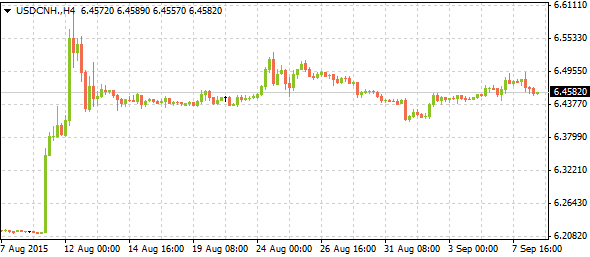Gold prices set for weekly gains on dovish Fed outlook; silver near record high
The latest overnight data from China has confirmed the worst suspicions of economists and market participants: China is experiencing a hard landing. After a decades long effort to modernize the Chinese economy and implement infrastructure development across the country, China’s rapid transformation has provided a multitude of benefits for the nation but equally heightened the risks to the outlook. The emphasis on growth meant many critical aspects of the centrally planned economy went overlooked. The philosophy of build it 'bigger and faster' was the prevailing driver until the crisis of 2009 forced policymakers to examine how dependent the nation had become on the export economy. Subsequent measures aimed toward transitioning from an export orientation to a consumption-driven model largely fell short of reducing the nation’s reliance on external conditions. Today’s falling import and export numbers highlight the challenges facing policymakers as the global trade downturn affects every facet of the export economy.

Based on the reversal in the fundamentals underpinning the global economy, exporters are keen to maintain their competitive edge relative to rivals. Most often, this strategy is implemented vis-à-vis devaluation of the local currency in order to price goods more aggressively for global import markets. However, the interbank market for currencies is largely speaking a zero-sum game, meaning that corresponding moves involve a race to the bottom to devalue the quickest. This runs contrary to existing measures agreed upon by the G20 citing the need for sovereigns to avoid engaging in economic protectionism. The key trade at the moment as a result of these export, crisis-driven policies is expecting sovereigns depending on exports to devalue further as quickly as possible relative to exporting peers. This latest development in the global currency war is likely to spark another round of devaluation, especially in emerging economies while countries that pledged not to directly intervene in currency markets are forced to erect trade barriers to protect competitive advantages, another measure that invariably hurts efforts at stoking global trade.
